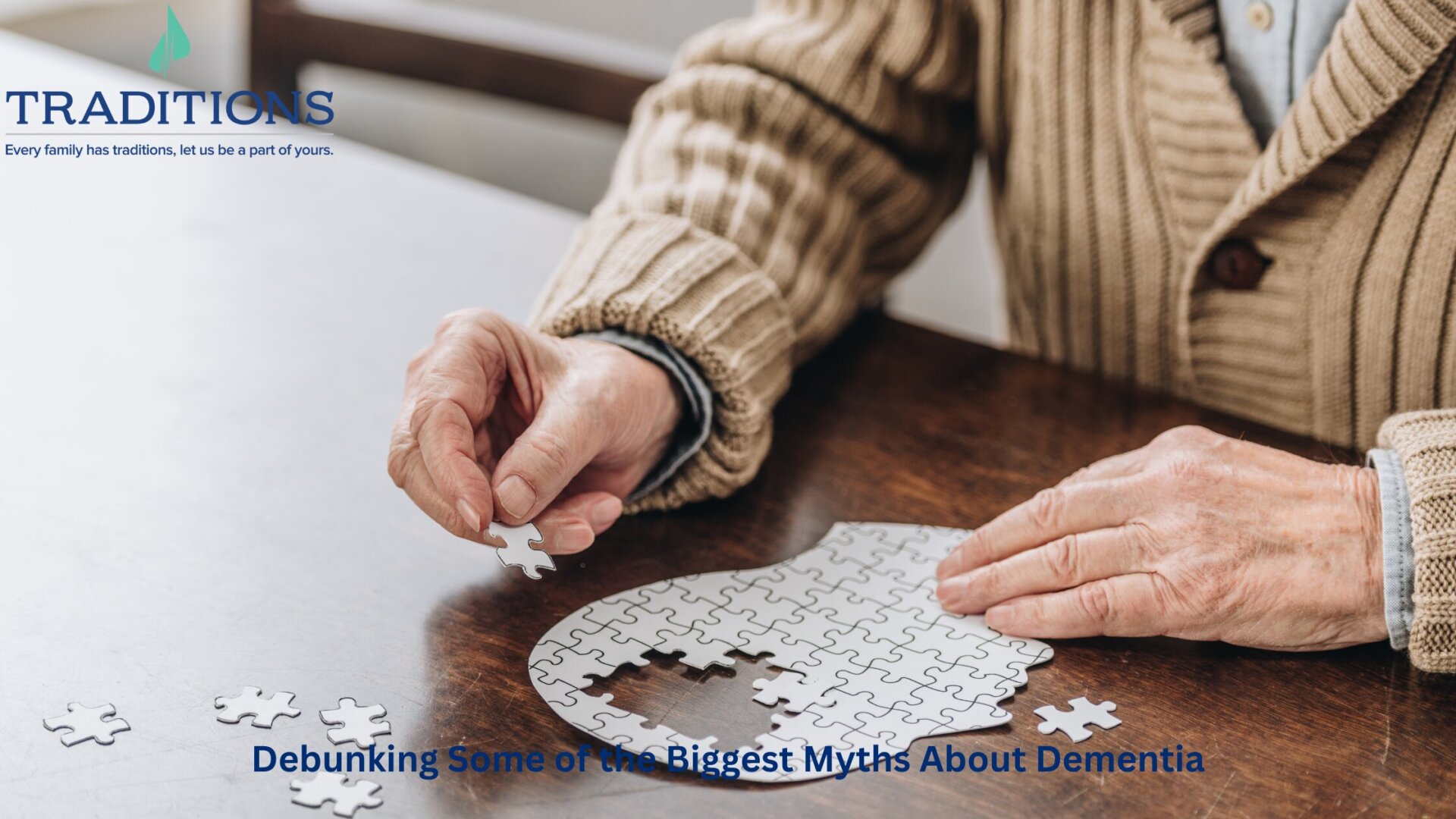
Debunking Some of the Biggest Myths About Dementia
- Dementia is a normal part of aging 👵
- There is nothing I can do to lower my risk of dementia 🤷🏼♂️
- It’s all about the brain…🧠
You’ve probably heard several of the aforementioned myths about dementia. When it comes to dementia, misinformation can be just as harmful as the disease itself. And unfortunately, once you hear a diagnosis of dementia, you begin to think about the worst-case scenario.
One of the biggest myths about dementia is that it is impossible to slow down memory loss. Fortunately, this is simply not true! There is a wide variety of available treatments and interventions that can help slow memory loss in persons living with dementia. At Park Place Senior Living, we take the diagnosis of dementia seriously.

What Increases the Likelihood of Dementia?
It is important to understand the things that increase the risk of dementia. While many factors may increase the likelihood of memory loss and dementia, there is strong to moderate evidence that the following can significantly increase your risk:
- Traumatic brain injury
- Mid-life obesity
- Mid-life hypertension
- Smoking
- Diabetes
How Can I Decrease the Likelihood of Dementia?
First, and most importantly, a healthy body and a healthy brain go hand in hand. You can reduce your risk of dementia and many other age-related physical and cognitive ailments simply by living a healthier lifestyle. Regular exercise of the body and the mind has been shown to have a positive impact on all areas of health, including age-related memory loss.
Wait, exercise my mind?! Sure! We all, at least conceptually, understand the mechanics and benefits of exercising our bodies; examples include walking or running, lifting weights, yoga, Pilates, swimming, or participating in individual or team sports. But exercising our brains is more complicated to wrap our minds around. Pun intended.
Regular, sustained physical exercise helps our brains remain healthy and function normally, but the brain itself can be exercised like any other muscle. Cognitive exercises, such as rote memorization, math tables, crossword puzzles, and mnemonics, can all have a positive impact on your brain, helping to keep it healthy, nimble, and functional. Here are some examples of things that can decrease your risk of dementia:
- Years of formal education
- Physical Activity
- The MIND diet
- Cognitive Training: check out the brainHQ app.
Diet, Supplements, and Medication
Your diet can also impact your physical and mental health. Research indicates that the MIND diet, an approach to nutrition that combines elements of the Mediterranean diet with the DASH (Dietary Approaches to Stop Hypertension) diet, can have a positive impact on overall health, particularly brain health. Nine foods to eat on the MIND diet include:
- Green, leafy vegetables
- Other vegetables
- Berries
- Nuts
- Olive Oil
- Whole grains
- Fish
- Beans
- Poultry
You may have heard about over-the-counter supplements that can help improve brain health. While their claims may sound like an easy fix, it is essential to consult your doctor before adding any supplements to your diet.
Finally, there are many breakthroughs in medications that treat dementia. Obviously, it is absolutely critical that you discuss medications with your doctor. You can visit alzforum.org to read about other people’s experiences with medications, but keep in mind your situation is unique to you, and your mileage may vary.
The Varietas® Memory Care Program by Traditions
The Varietas® Memory Care Program by Traditions is our unique, specialized program for individuals living with Alzheimer’s or other age-related dementias.
Our memory care experts in Fort Wayne, Indiana, provide our residents with excellent care, treating them with dignity and respect.
The mission of Varietas® is to maintain independence and improve quality of life by focusing on environment, engagement, and education.
Environment
Varietas® relies on the things we learn about your loved one to comfort and connect with them in a warm and nurturing environment. Our memory care communities are thoughtfully designed with safety and convenience in mind. You may see things like secure, enclosed courtyards and gardens. Single floor layouts with familiar floorplans.
Hydration stations with colored and lightly flavored water to encourage hydration and stimulate appetite. Personalized Memory boxes and bold font name plates help resident navigate back and forth to their apartment. All of these elements work together to help residents feel safe and comfortable.
Engagement
Studies show socialization has a positive impact on seniors and can reduce, even prevent the signs of depression. Each resident's daily routine consists of their own combination of therapeutic and positive stimulation, including expressive arts, exercise, nutrition, reminiscing, cognitive activities, and social engagement with peers, staff, and families.
Education
Varietas® employees and managers receive Certified Dementia Practitioner (CDP) training , which is the highest standard in Alzheimer’s and Dementia education.
Varietas® Employees Also Receive:
- Varietas® Memory Care Training
- Memory Care Sensitivity Training
- Evidence-based training that stimulates changes associated with cognitive decline
Wrap Up
A dementia diagnosis can be overwhelming. Anything that changes the trajectory of your life’s path can feel like an insurmountable challenge. The good news is that there are many interventions, treatments, and services to help you navigate dementia. With exercise (for both body and mind), a healthy diet, and regular time, you can reduce your risk of dementia or slow the progression of the disease. Learn more about our series on dementia myths here.

